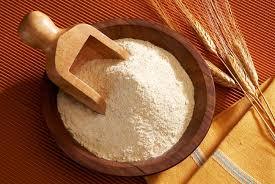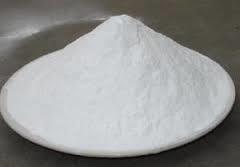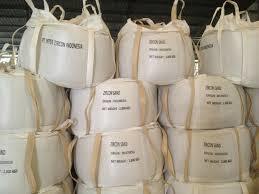

Wheat Flour
Product Details:
- Purity 99%
- Preserving Compound No Preservatives
- Shelf Life 6-12 Months
- Imperfect Ratio (%) 0.01%
- Style Dried
- Processing Type Raw
- Grade Food Grade
- Click to view more
X
Wheat Flour Product Specifications
- 0.01%
- 0.01%
- MP Wheat
- White
- Sun Dried
- 12%
- No Preservatives
- 6-12 Months
- Yes
- 99%
- Powder
- Common
- Hard Wheat
- Food Grade
- 0.01%
- Raw
- Dried
- 1-2%
- 10-12%
- Bakery, Cooking, Industrial, Household
- PP Bag, HDPE Bag, Paper Bag
- 70-75%
- Extra Fine
- 1kg, 5kg, 10kg, 25kg, 50kg
- Natural Wheat Flavor
- 0.3%
- 9-10%
Product Description
Wheat flour is a type of flour that is made by grinding wheat grains into a fine powder. It is the most commonly used flour in baking and is used to make a wide variety of baked goods such as bread, cakes, pastries, and biscuits.
There are different types of wheat flour, each with different characteristics and uses. Some of the most common types of wheat flour include:
1. All-purpose flour: This is the most common type of wheat flour and can be used for a wide variety of baked goods.
2. Bread flour: This type of flour has a higher protein content than all-purpose flour, which makes it ideal for making bread.
3. Cake flour: This type of flour has a lower protein content than all-purpose flour, which makes it ideal for making cakes and other delicate baked goods.
4. Whole wheat flour: This type of flour is made from the whole wheat grain, which gives it a higher fiber content than other types of wheat flour. It is often used in bread and other baked goods for its nutritional benefits.
Wheat flour is a staple food in many cultures around the world and is a rich source of carbohydrates, protein, and fiber. However, some people are allergic or sensitive to wheat and must avoid it in their diets.
Frequently Asked Questions:
1. What is wheat flour?
Ans: Wheat flour is a type of flour made from grinding wheat grains into a fine powder. It is the most commonly used flour in baking and is used to make a wide variety of baked goods such as bread, cakes, pastries, and biscuits.
2. What are the different types of wheat flour?
Ans: There are different types of wheat flour, each with different characteristics and uses. Some of the most common types of wheat flour include all-purpose flour, bread flour, cake flour, and whole wheat flour.
3. What is the difference between all-purpose flour and bread flour?
Ans: Bread flour has a higher protein content than all-purpose flour, which makes it ideal for making bread. All-purpose flour, on the other hand, has a lower protein content and can be used for a wide variety of baked goods.
4. Is wheat flour healthy?
Ans: Wheat flour is a good source of carbohydrates, protein, and fiber. However, it is also high in calories and can be a problem for people who are allergic or sensitive to wheat.
5. Can I use wheat flour if I have a gluten allergy?
Ans: No, people with gluten allergies or celiac disease cannot use wheat flour as it contains gluten. Gluten-free flours such as almond flour, coconut flour, and rice flour can be used as substitutes for wheat flour.
6. Can I substitute wheat flour with other types of flour?
Ans: Yes, you can substitute wheat flour with other types of flour such as all-purpose flour, bread flour, cake flour, or whole wheat flour, depending on the recipe and the desired outcome. Gluten-free flours can also be used as substitutes for wheat flour. However, keep in mind that different types of flour have different characteristics and may affect the texture and taste of the final product.
7. How should I store wheat flour?
Ans: Wheat flour should be stored in an airtight container in a cool, dry place, away from heat and light. It is recommended to use wheat flour within 6-8 months of purchase for optimal freshness and quality.
Versatile Application Across Industries
Whether youre a bakery owner, home cook, or industrial user, this wheat flour provides excellent performance and consistency. Its extra-fine texture ensures smooth dough and batter, while high purity and natural flavor make it suitable for diverse culinary applications. From bread and cakes to noodles and pastries, this flour delivers remarkable results every time.
Exceptional Quality and Food Safety
Only handpicked hard MP wheat from Turkey is used, ensuring a food-grade product. This flour is sun-dried and meticulously processed without preservatives to maintain maximum freshness. Rigorous standards guarantee an imperfect ratio, foreign particles, and broken kernels of just 0.01%, providing reliability in every batch.
Packaging Choices to Suit Every Need
Select from convenient packaging optionsPP bag, HDPE bag, or paper bagsranging from 1kg to 50kg. This range accommodates both small-scale and large-scale requirements, with each package designed to protect the flours quality and extend its shelf life of 612 months when properly stored.
FAQs of Wheat Flour:
Q: How should wheat flour be stored to maximize its shelf life?
A: To preserve wheat flours freshness and quality, store it in a cool, dry place away from direct sunlight and moisture. Ensure the packagingwhether PP, HDPE, or paper bagis tightly sealed. Proper storage can maintain the flours condition for 612 months.Q: What is the process used to produce this wheat flour?
A: This flour is made by finely milling hard MP wheat, which is first sun-dried to reduce moisture to 12%. The flour is then processed to achieve an extra-fine powder, carefully filtered to remove any impurities, and packaged without preservatives to maintain its natural flavor and food-grade purity.Q: Where is this wheat flour sourced and processed?
A: Our wheat flour is sourced from high-quality hard wheat cultivated in Turkey. All processing, including drying and milling, takes place locally before the product is distributed globally by authorized suppliers, exporters, and traders.Q: What are the primary benefits of using this flour in baking and cooking?
A: With its 1012% protein and 910% gluten content, this flour provides ideal elasticity and structure for baked goods. Its purity, natural flavor, and extra-fine texture allow for superior results in bread, pastries, and other recipes, making it valuable for professional and home use alike.Q: When is this flour suitable for use in industrial applications?
A: Thanks to its consistent quality and high purity, this wheat flour is suitable for continuous, large-scale production in food manufacturing plants, bakeries, and other industrial settings. Its reliable performance supports efficient operations and consistent product quality.Q: What makes this wheat flour a good option for health-conscious consumers?
A: This flour contains no preservatives, is made from high-purity wheat, and is sun-dried to maintain its nutritional content. With low ash and fat content, it offers a wholesome, natural wheat flavor while meeting strict food-grade standards.Tell us about your requirement

Price:
Quantity
Select Unit
- 50
- 100
- 200
- 250
- 500
- 1000+
Additional detail
Mobile number
Email




 Call Me Free
Call Me Free
